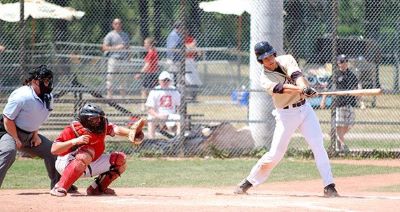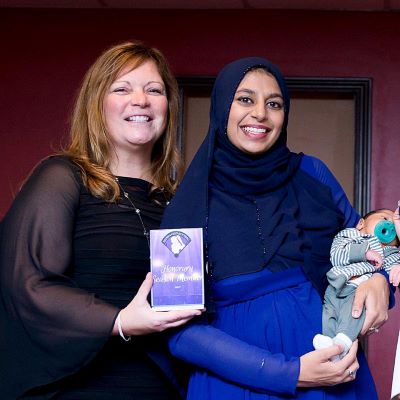Lisa Turbitt, teacher-librarian at Chris Hadfield Public School in Milton, will become the first female umpire to ever officiate a qualifying match at the World Baseball Classic (WBC) event next month in Arizona.
She shares her thoughts, accomplishments and future goals as she excitedly looks to break new ground as a pioneering female umpire when she steps behind the plate in March.
***
What does it mean to you to be selected by Major League Baseball to represent Baseball Canada and Baseball Ontario umpiring at the 2020 World Baseball Classic Qualifier in Tucson, Arizona?
Not unlike athletes, officials, referees and umpires have dreams to officiate at the highest events possible in their sports. I am so excited to be umpiring at the
WBC Qualifier. I am humbled to be the first woman to umpire at this event and hope there will be many more after me. I also hope that others take inspiration from this and follow dreams that they didn’t think were possible.
What training goes into becoming a baseball umpire?
I think most people would be surprised at the amount of training required to be an umpire. The training elevates with the level of the umpire. A starting umpire in Ontario would need to attend a six-hour umpire certification clinic run by Baseball Ontario. They usually also have some training or on-field practice with their local association.

Provincially, Ontario has Umpire Levels 1-3, which typically takes six years to achieve Level 3. At Level 3, umpires must write a yearly exam and achieve a 75% or higher or attend a Provincial SuperClinic. Baseball Canada certified umpires are Levels 4 and 5. Umpires must be this level to umpire at a Baseball Canada National Championship. Umpires who umpire nationally may be selected to umpire internationally. This is the certification requirements for an umpire.
Much like athletes, officials must train and prepare to perform the best they can to achieve assignments to higher levels including the Summer Olympics. During the course of a game, which can last 2-4 hours, an umpire will squat an average 250-400 times.
Why did you want to pursue being an umpire? Do you remember the first game you umpired and what it was like?
It was at Greenwood Park in Burlington. My younger brother was playing T-ball. No umpire showed up. My dad was the coach. They were going to ask one of the parents to umpire but my dad suggested that I umpire the game. I LOVED it. The other coach told my dad that I was as good as the umpires they had seen all season. I umpired for the rest of the year. That was 40 years ago.
What skills as an umpire have helped you in your role as a teacher-librarian at the Halton District School Board?
Being an umpire has helped me to develop a number of skills. Good communication skills are probably the biggest asset to me as a teacher. Communication in a heightened situation, as you may have seen in baseball arguments, is a key to defusing a situation and achieving a resolution.
Do you think of yourself as a role model? Describe how that makes you feel?
I think anyone who follows their dreams and is able to overcome obstacles is a role model. When people ‘see it’, they realize they can ‘be it’. I think students who may have had to face challenges take inspiration from others when they hear their stories and see their success.

It has also given me the opportunity to connect beyond students in our school to members of our community. A mother of one of our students approached me after hearing stories of my baseball life from her child. She is a founding member of Sisterhood Softball - a Muslim faith based softball league for women. She asked me to help with her league. Sisterhood Softball has grown to an eight-team league. They are amazing women. I am proud of my community connection with them. Watching them achieve goals involving women in sport is inspiring.
What do you hope to teach students about your accomplishments as an international umpire?
I actually think baseball or umpiring is the back part of the story. I think the part of the story that resonates with students is overcoming obstacles. I often tell students that they should dream big and not to worry if they want to do something no one has done before; maybe they will be the first. They shouldn’t limit their dreams by what others say their dreams should be, even if well intended.
What's next for Lisa Turbitt?
This is the best part - who knows.
I do have a goal to write a children’s book. Anything is possible. I am very appreciative of the support from my colleagues, administration and the HDSB.
